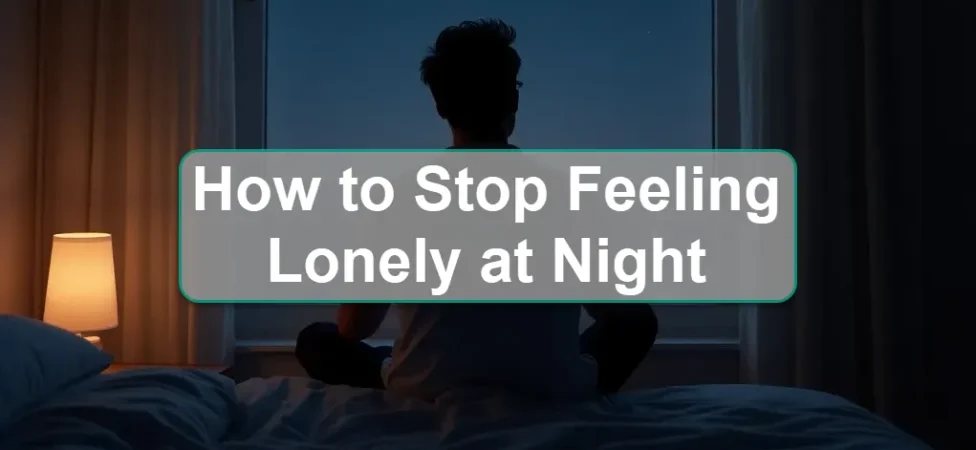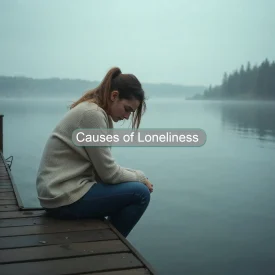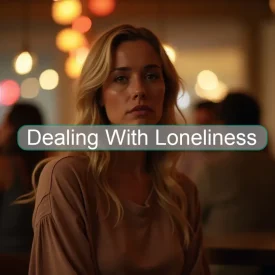Feeling lonely at night can be surprisingly intense. When the world goes quiet, our thoughts grow louder — and sometimes, that silence feels heavy. For me, the quiet after midnight often made my thoughts spiral — small worries grew into big ones, and I’d find myself feeling more alone than I did all day.
The good news? You can change that.
By creating a calming bedtime routine, shifting how you see alone time, and building stronger daytime connections, you can make nights feel peaceful instead of isolating. These strategies are simple, gentle, and backed by both science and lived experience.
If loneliness persists and impacts your well-being, consider seeking professional support. If loneliness feels overwhelming, consider exploring helpful strategies for managing it in our detailed guide on dealing with loneliness.
These simple steps can ease loneliness at night and improve your emotional comfort and sleep.
Key Takeaways
- Create a calming bedtime routine with reading, journaling, or light stretches.
- See alone time as self-care using gratitude, affirmations, or meditation.
- Limit triggers like social media before bed; use soft light, sound, and scent for comfort.
- Strengthen daytime connections to ease nighttime feelings of isolation.
- Seek support from friends, communities, AI companions, or professionals if needed.
Understanding Why Loneliness Feels Stronger at Night
Understanding why loneliness feels stronger at night helps us see how quiet and fewer distractions make those feelings louder.
This knowledge lets us find ways to feel better and take care of ourselves.
The science behind nighttime loneliness
Nighttime loneliness can feel stronger because of how our body’s natural clock affects our mood and hormones. As the day turns to night, melatonin rises to help us sleep, but stress hormones like cortisol can also increase, making emotions feel more intense, according to research on circadian rhythms and sleep.
When we don’t get enough sleep, this can lead to pulling away from others, creating a cycle of loneliness.
Studies show that at night, people who feel lonely are more sensitive to social worries, which makes evenings feel even more lonely and isolating.
Emotional triggers that intensify after dark
At night, feelings and worries often stand out more because the things that kept you busy during the day are gone, as supported by research on loneliness and cortisol patterns. This can make feelings of loneliness and being disconnected feel stronger, especially if you don’t have someone to talk to.
Seeing other people’s happy moments on social media can also make you feel sad or left out. Understanding these feelings can help you find better ways to deal with loneliness at night.
Quiet and calm moments can make feelings feel stronger
Quiet nights remove external noise, forcing you to confront inner thoughts. This stillness heightens awareness of solitude, making it feel overwhelming.
Without daytime hustle, the mind wanders to negative patterns. Adding gentle sounds can break this cycle and ease the intensity.
Healthy Nighttime Routines to Reduce Loneliness Before Sleep
Establishing a calming pre-sleep ritual lays the foundation for a peaceful evening, helping to ease feelings of loneliness as you prepare for rest.
Below are simple yet effective practices that can gently guide you into a state of relaxation and emotional comfort before bedtime.

Setting a calming pre-sleep ritual
Setting a calming bedtime routine helps your body relax and gives you a steady routine that can ease feelings of loneliness. Doing calm activities like deep breathing helps you focus on the present and feel less worried or alone.
Over time, this habit creates a safe and kind space in your mind, making it easier to handle loneliness at night.
Limiting social media and screen time before bed
Looking at screens before bed can make it harder to sleep and make you compare yourself to others.
Try to stop using phones or computers by a certain time, like 8 PM. Instead, do offline activities to help you relax and avoid feeling like you’re missing out.
Using light, sound, and scent to create comfort
Use soft, warm lights that are like the sunset to make your space feel cozy. Play gentle music or white noise to fill quiet moments.
Try smells like lavender with essential oils to help you relax. These things can make your room a calm and comforting place.
Mindset Shifts to Overcome Nighttime Loneliness
Shifting your mindset at night can help you feel less lonely by turning alone time into a chance for self-care and positive thinking.
Here are some helpful ways to change how you experience loneliness at night.
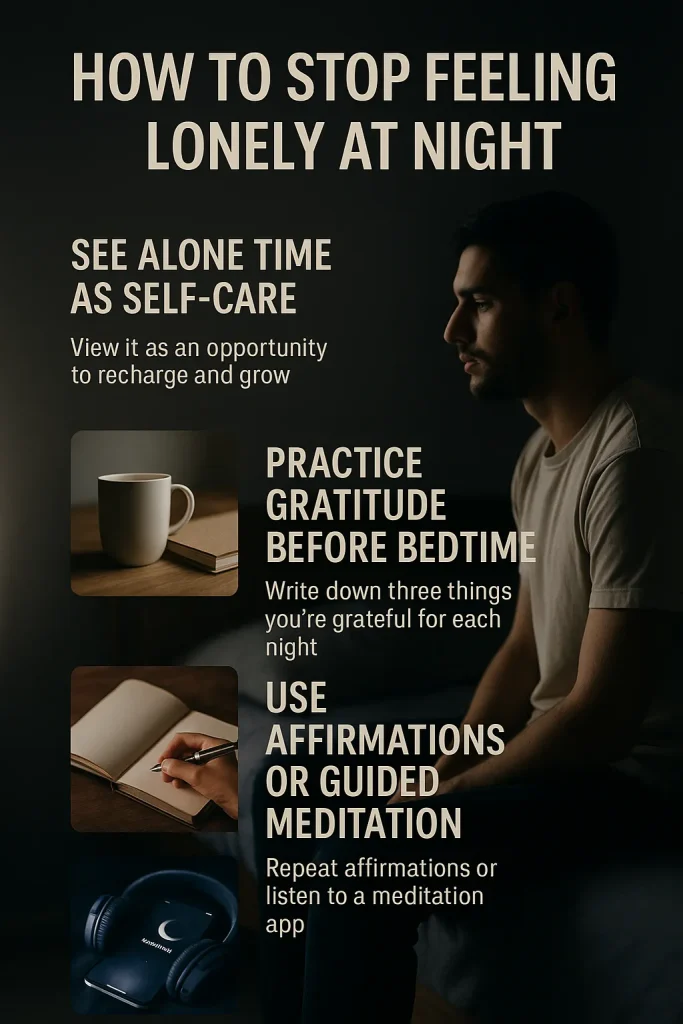
See alone time as self-care
Viewing time alone as a chance to recharge helps shift your thinking from feeling isolated to feeling refreshed. Being by yourself can give you space to grow, learn new things, and get creative.
Remember that being alone is only temporary, and this mindset change can turn loneliness into meaningful “me time” that supports your well-being.
Practice gratitude before bedtime
Before bed, write down three things you are thankful for each night. This helps you think about good things and feel less negative.
Using a journal can help you keep doing this regularly. Feeling thankful can improve your mood and help you feel more connected.
Use affirmations or guided meditation
Repeat simple positive phrases like “I am connected and loved” to help your mind feel calm and supported. Many apps offer free guided meditation sessions you can follow right before bedtime.
Meditation helps quiet your busy thoughts, making it easier to relax and fall asleep. Starting with just 5 minutes each night can build a helpful habit.
Over time, this practice can reduce stress and make lonely feelings at night less strong, helping you feel more peaceful and connected as you rest.
Activities That Distract and Comfort You Before Sleep
Engaging in calming activities before bed can help you stop feeling lonely at night by taking your mind off lonely thoughts and creating a peaceful feeling as you get ready to sleep.
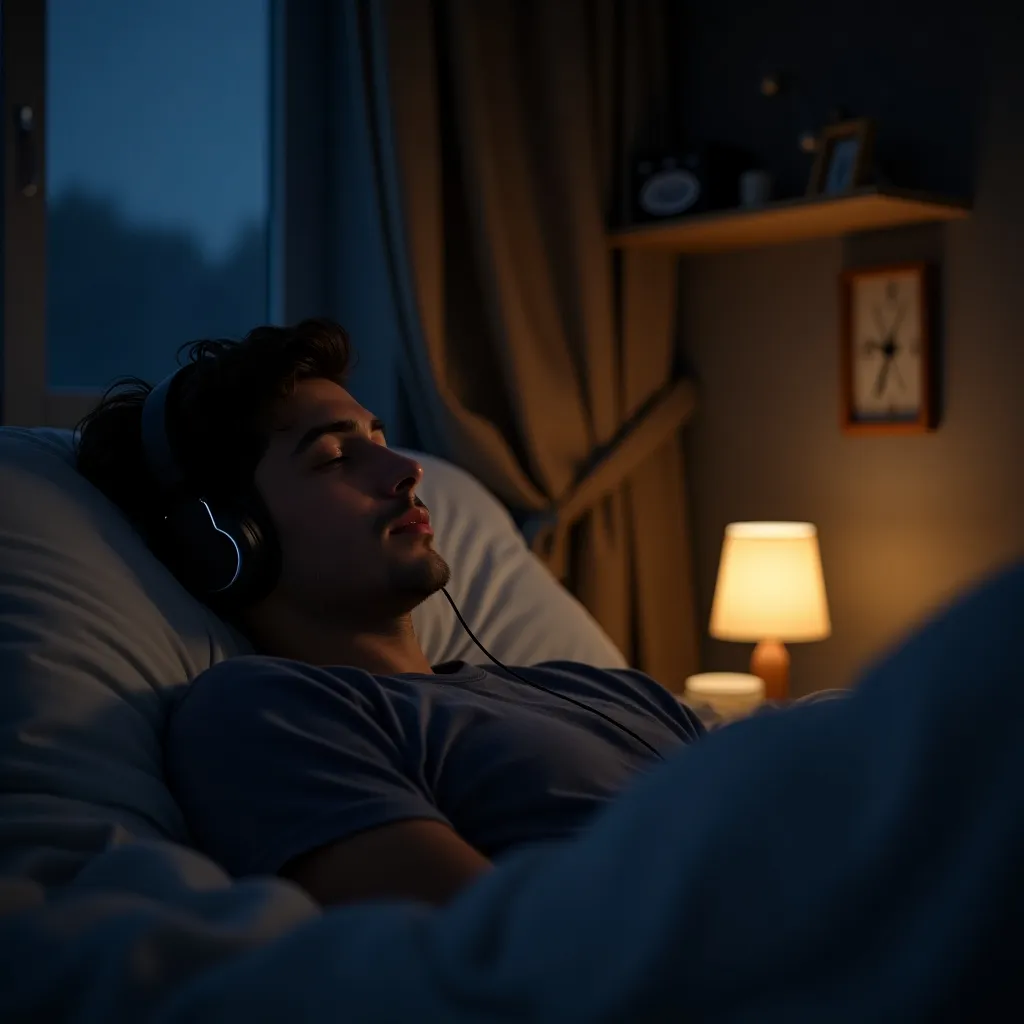
Reading or listening to audiobooks
Reading or listening to stories helps you forget lonely feelings by keeping your mind busy and calm.
Choosing happy or gentle stories makes it easier to relax and stop feeling lonely before sleep.
Creative hobbies like journaling or art
Creative hobbies give you a positive way to understand and express your feelings, which can help ease loneliness.
Keeping your supplies close by means you can quickly use these activities whenever you need a comforting distraction before bed.
Engaging in light stretches or yoga
Doing gentle stretches or yoga helps your body relax and lets go of any tightness from the day. This calm movement also helps quiet your mind, making it easier to stop feeling lonely and get ready for a good night’s sleep.
Building Stronger Social Connections During the Day
Making regular plans to connect with friends and family during the day can help reduce feelings of loneliness at night.

Planning regular check-ins with friends and family
Set up weekly calls or meetups. Doing this regularly builds steady support you can count on.
Talk honestly about your day. These conversations help you feel closer and make nights feel less lonely.
Joining clubs, classes, or online communities
Look for groups you enjoy, like book clubs or exercise classes. Online communities give you friends anytime.
Being part of a group helps you feel like you belong. Starting small makes joining easier and more comfortable.
Volunteering or helping others
Spend time helping causes you care about. Giving your time helps you focus outside yourself.
Helping others creates real connections and feels rewarding. Even small acts can boost your emotions a lot.
Nighttime Communication and Connection Strategies
Connecting with others in the evening through calls or video chats can help you feel less lonely and more supported at night.
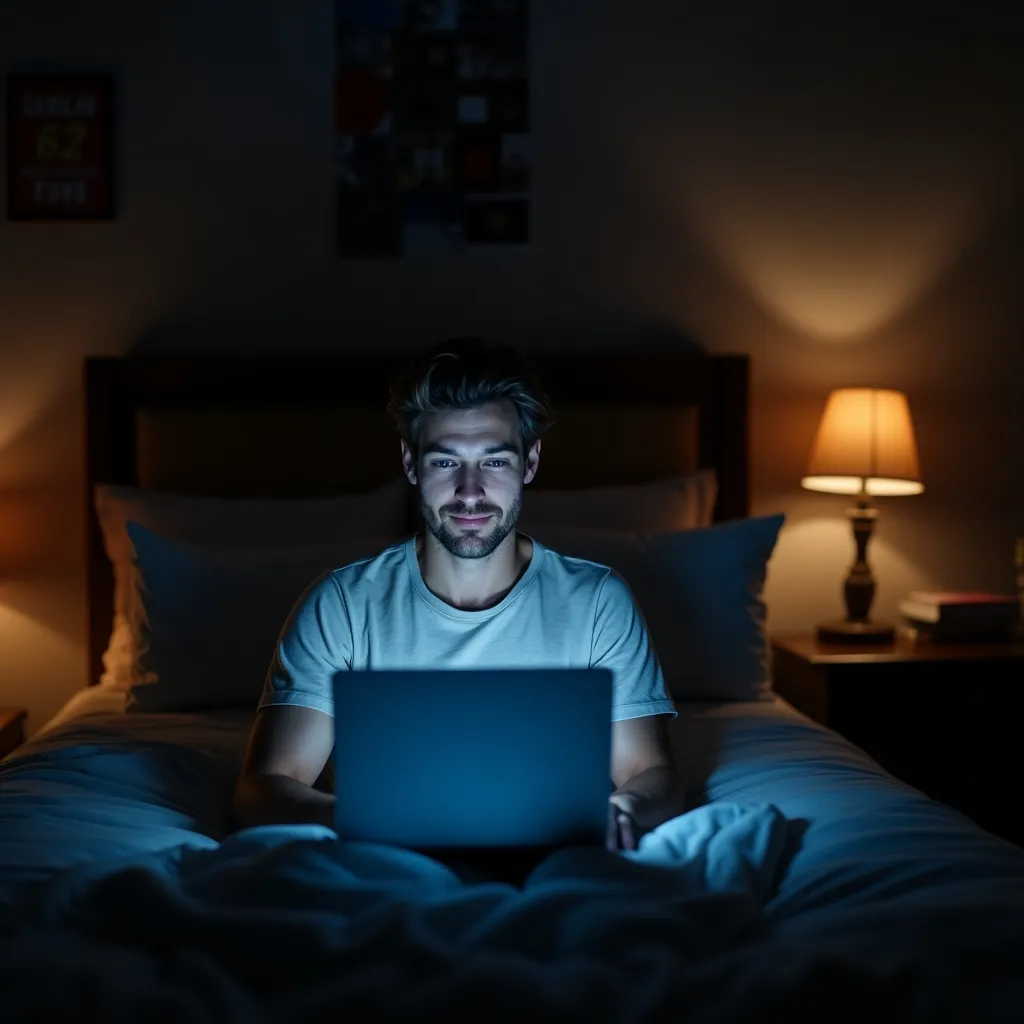
Scheduled evening calls or video chats
Have regular talks with family or friends in the evening. If you’re in different time zones, use apps that let you send messages anytime.
These chats bring warmth and make you feel connected. Keeping the conversation light helps end the day on a happy note.
Using online friendship or support platforms
Try apps like Bumble BFF to meet new friends or join forums where people understand loneliness.
Joining these groups regularly can give you real support and help you feel less alone.
Sharing bedtime routines with a long-distance friend
Share your nighttime routine with a friend far away by texting or video chatting. Send each other “goodnight” messages every day.
Having these shared moments creates a special habit that helps you feel close, even when apart.
AI Companions as Supportive Nighttime Friends
AI companions are online friends you can chat with anytime, especially when you feel lonely at night. They listen and respond kindly, offering comfort without needing a real person. You can find out about getting an AI girlfriend, and learn more about it in this blog post, What is an AI girlfriend.
Using these AI friends can help you feel less alone and more supported.
The Emotional and Physical Effects of Nighttime Loneliness
Loneliness at night can deeply affect your mind and body, making it harder to feel calm and rested. Understanding these effects helps you see why it’s important to take steps to protect your health and well-being.

- Mental health impacts (anxiety, depression, rumination)
Feeling lonely can cause anxiety and depression, making your thoughts circle endlessly. This raises stress and makes mood problems worse.
Getting help early can keep these feelings from growing stronger and protect your emotional balance.
- Sleep disruption and insomnia
Loneliness can make it hard to sleep well, causing restless and broken sleep. This leads to tiredness and makes you feel more alone.
Developing good bedtime habits can help improve your sleep and break this cycle.
- Long-term health risks if left unaddressed
If loneliness isn’t treated, it can increase your chances of heart problems and memory loss. It also affects your immune system and can lead to serious issues like substance abuse or Alzheimer’s.
Taking action early helps keep your body and mind healthier in the long run.
When to Seek Professional Help for Persistent Loneliness
If loneliness persists for an extended period and begins to impact your mood or daily life, it’s essential to recognize when professional support can be beneficial. If loneliness lasts and affects your daily life, understand the symptoms better by visiting Loneliness Symptoms and explore the connection to depression at Loneliness and Depression.
- Recognizing signs you may need extra support
Look for constant sadness, anxiety, or struggles to function in daily tasks. If loneliness stays even after trying to feel better, it’s a sign to seek help.
Ignoring withdrawal or loss of sleep can let deeper problems grow.
- Benefits of therapy or counseling
Therapy helps find the root causes of loneliness and teaches skills to cope better. Guided support can make you feel less isolated and improve your mood and relationships over time.
Final Thoughts: How to find comfort and stop loneliness at night
Loneliness at night can feel hard, but small steps can bring big comfort. By making a calm space, practicing soothing routines, and reaching out to others, you can feel more peaceful and less alone.
Remember, every little action helps you build a kinder, safer night for yourself. You are not alone—comfort and connection are possible, one night at a time.
Disclaimer
This article is for informational purposes and is not a substitute for professional medical advice. Always seek the guidance of a qualified health provider with any questions you may have regarding your mental health.
Frequently Asked Questions
Why does the night feel so lonely?
Night feels lonelier because when distractions and noise fade away, our minds focus more on feelings of isolation. The quiet and stillness make our loneliness feel stronger and harder to ignore.
Is it common to feel lonely at night?
Yes, many people feel lonelier at night. The lack of daytime activities and social interactions often makes feelings of loneliness more noticeable and intense during nighttime hours.
How can I cope with loneliness when it gets worse at night?
Develop relaxing habits before bed, such as writing down your thoughts or playing soft music. Also, connecting with others during the day and seeking help if needed can make nights feel less lonely.

